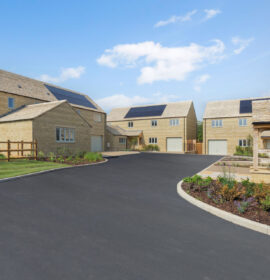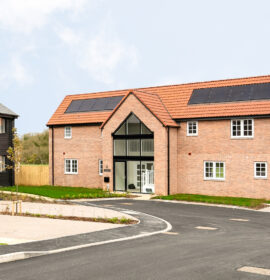
EPC Ratings Explained
The cost-of-living crisis coupled with becoming more aware of our carbon emissions has meant that the energy efficiency of our buildings has never been more important. EPC is the acronym that is used a lot with home energy efficiency, but what exactly does it mean, and how does it affect your bills, we’re here to help explain…
What is an EPC?
EPC stands for Energy Performance Certificate.
The EPC rating is a review of a property’s energy efficiency and apart from listed buildings, every home needs to have a valid EPC before it can be sold or rented out. This is then used by prospective buyers or tenants to see how energy efficient the home will be and ultimately how much their energy bill would cost in their new home.
Why else are EPC’s beneficial?
With rising energy costs, they are a useful tool to see where the property is lacking in energy efficiency and how you can make improvements.
What does the EPC scale mean?
Energy Performance Certificates are rated from ‘A’ to ‘G’, with ‘A’ being the most energy efficient, and ‘G’ being the least. The certificate will show what the current rating is and which letter category it falls into as well as showing the potential rating if you make some recommended changes.
The more energy efficient a property is, the lower the energy bills are likely to be. For example, a property with a high energy efficiency rating is likely to be well insulated, with high performance windows, a covered boiler and may have renewable energy features like a ground source heat pump or solar panels.
What happens in an EPC assessment?
- Your home’s EPC rating will depend on the amount of energy used per metre squared.
- The level of carbon dioxide emissions.
The energy assessor will look at these areas:
- The age, construction and size of your property.
- Insulation – whether there is cavity wall insulation or loft insulation installed.
- Lighting – whether any energy saving light bulbs or low energy light bulbs are in use.
- Primary heating systems – including the boiler and heating controls.
- Any secondary heat sources including renewable energy sources.
- Windows – if you have double glazing or higher.
Once all these areas have been assessed, then a calculation is made and you are provided with an EPC rating for your property. Alongside this certificate, the energy assessor will also provide advice on improvements that will help you improve your property’s energy rating in future – for example if you invested in adding cavity wall insulation or double glazing, this could move your EPC rating from a C to a B which would save you x amount on bills!
Rules and regulations on EPC’s
If you are selling or are a landlord and you do not have an EPC, you could be fined up to £5,000. Under new government proposals, this would be increased to £30,000 from 2025.
Under the new landlord rules, set to become law in England and Wales in 2025, landlords of privately tenanted properties will need to ensure that their rental property scores at least an EPC C in order to let it out on a new assured tenancy.
Mortgages and EPC’s
Some mortgage companies are only offering certain products to customers purchasing homes with a certain EPC rating or better.
Do all new build homes have a high EPC rating?
An analysis of Government data on the energy efficiency of new build and existing homes, highlights:
- New build properties significantly reduce households’ energy usage, with the average new home using approximately 100 kWh per m2 per year compared with older properties which require an average of 259kWh per m2.
- New build properties (houses and flats) save an average of just over £2,000 per property each year, with the average annual running costs for a new build totaling £1,500 as compared to an average of £3,570 for older properties. These savings rise to £2,600 a year when looking at new and old houses alone, rather than smaller properties such as flats or bungalows.
- 84% of new build homes were rated with an EPC of B or above, while less than 4% of existing dwellings reached the same standard*
In simple terms, this essentially means that buying a new build home could save you money in the long run!
Acorn new build homes
All Acorn new build homes are rated EPC A or B, include high performance windows and insulation and often feature renewable energy features like ground source heat pumps, electric car charging and solar panels – designed to save you money on your energy bills. Click here to view our developments.
*Data collected from the House Builders Federation’s ‘Watt a Save’ report, October 2022














